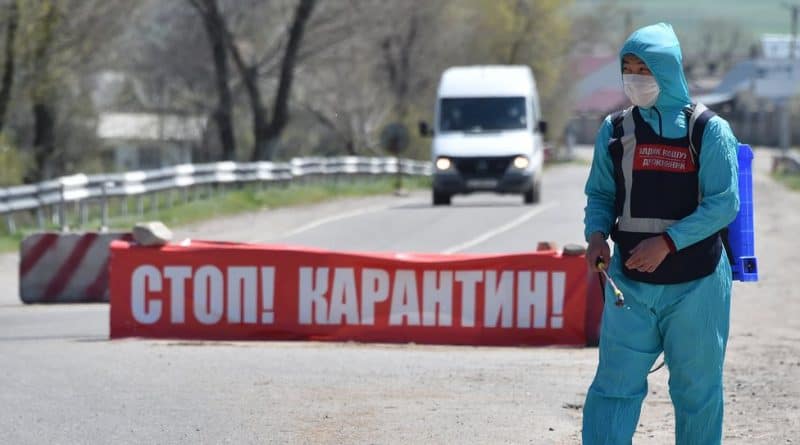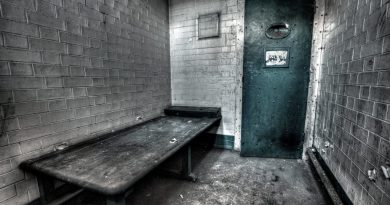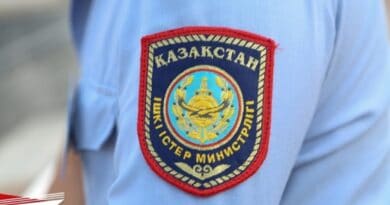Kyrgyzstan: pandemic has helped the authorities to tighten the screw a bit
Central Asian authorities, including Kyrgyzstan, have used the COVID-19 pandemic as an excuse to suppress policy criticism and tighten up on independent media, civil society and social media users. This is stated in a new informational document published by the International Partnership for Human Rights, the International Bureau for Human Rights and Rule of Law in Kazakhstan, the Legal Prosperity Foundation, the Turkmen Initiative for Human Rights and the Association for Human Rights in Central Asia.
The informational document, titled “Central Asia: crackdown in relation to government critics during the COVID-19 pandemic,” summarizes disturbing interregional trends.
Among them:
– lack of access to information and unjustified measures to combat disinformation;
– persecution of critics of the authorities;
– restrictive measures against civil society, controversial legislative initiatives.
All these negative trends during the pandemic were revealed in Kyrgyzstan as well. So in the republic, for several weeks after the introduction of emergency measures in response to the pandemic at the end of March 2020, journalists from non-state media could not effectively carry out their professional activities due to restrictive policies regarding accreditation and information.
In addition, during the pandemic, law enforcement agencies persecuted social media users who were exercising their freedom of expression. The secret services detained and pressured users of social networks to “publicly apologize” for posts allegedly containing “false” information about the pandemic. These targets included healthcare professionals who were focusing on the lack of adequate COVID-19 protection in healthcare institutions.
During the pandemic, the authorities also tried to pass new problematic legislation aimed at combating disinformation. So, in April 2020, a new provision was introduced into the Code of the Kyrgyz Republic on offenses, which provides for punishment for the dissemination of “false information” during emergency regimes with fines of up to 17,000 KGS (about 200 euros) for legal entities. Civil society representatives criticized the provision for its vague wording, warning that it could lead to arbitrary coercion that restricts freedom of expression.
In addition, the authorities tried to pass the law “On manipulating information”. This happened against the background of criticism from the media community and human rights activists, who believed that this document established a broadly worded ban on the dissemination of “false” information via the Internet and empowered the authorities without a court decision.
The OSCE Representative on Freedom of the Media warned that the law “would not provide the media and social media users with the necessary legal certainty” and stressed that online content regulation “could, in the absence of a clear mechanism and due process of law, seriously restrict freedom of expression”. However, in an expedited manner, the Parliament passed the bill in all three required readings in June 2020. After, under public pressure, the President Sooronbai Jeenbekov sent him back to the Parliament for revision.
Another draft law of serious concern to civil society is one that increases the already heavy accountability burden for NGOs. Human rights activists criticized this document, as they feared that it would be used as a tool of intimidation against NGOs that are “inconvenient” for the authorities. UN human rights experts concluded that if passed, the bill would “unjustifiably and disproportionately restrict the right to freedom of associations” and “could have a significant and harmful impact on the activities of all civic organizations”.
It is expected that the legislative branch of the republic will return to the consideration of these two bills after new parliamentary elections.
Also, the authors of the report note that pressure on certain representatives of civil society is growing in Kyrgyzstan. An example is the case of human rights defender Kamil Ruziev, who was charged with forging documents that were allegedly produced in retaliation for his efforts to hold the Security Service officers accountable for the torture and threats he had faced as a result of his work. He was detained by the Security Service at the end of May 2020 and held under house arrest for three weeks. Then he was ordered to come regularly to the police during the period of the investigation.
In addition, the authors of the report gave a description of the post-election situation in Kyrgyzstan.
“The post-election events in Kyrgyzstan entailed serious threats to democratic principles and the rule of human rights, law and protection of human rights. Of particular concern is the fact that democratic processes were set aside and political measures were taken outside the legal framework. Decision-makers reported that they were under pressure from organized criminal groups. Journalists, who were covering post-election events, were threatened and attacked. Peaceful protesters were subjected to violence by law enforcement agencies and non-state actors in circumstances that have to be investigated,” the authors of the document note.
It is worth recalling that the parliamentary elections in Kyrgyzstan on October 4, 2020, which were marred by massive violations, led to a confident victory for the pro-government parties. This provoked massive protests of the opposition and their supporters. What began as peaceful demonstrations in the capital (Bishkek city) escalated into clashes between protesters and law enforcement agencies on the evening of October 5, when the latter resorted to force after some protesters who tried to break through the gates of the White House, the presidential residence and the Parliament. During the clashes, hundreds of people were injured, one person died.
The clashes resulted in the fact that the protesters seized the “White House” and released high-ranking political figures from prison. In the following days, election results were reversed, and as various political groups gambled on power, the country was thrown into an insecure and unstable position. After the resignation of the government and the President, former people’s deputy Sadyr Japarov (one of those released on the night of October 5-6) took over the duties of both the Prime Minister and the President, thus concentrating executive power in his hands during the transition period.




